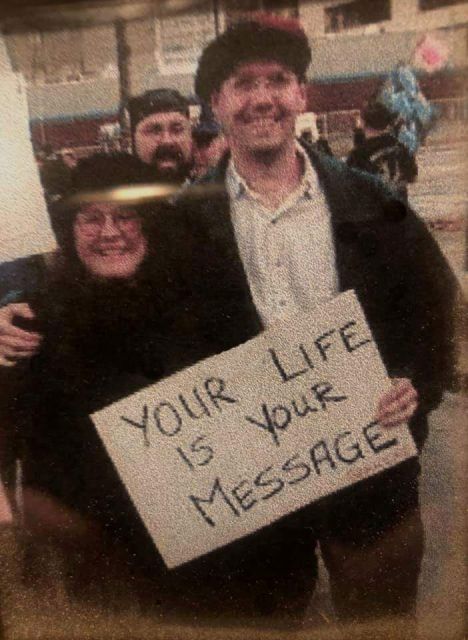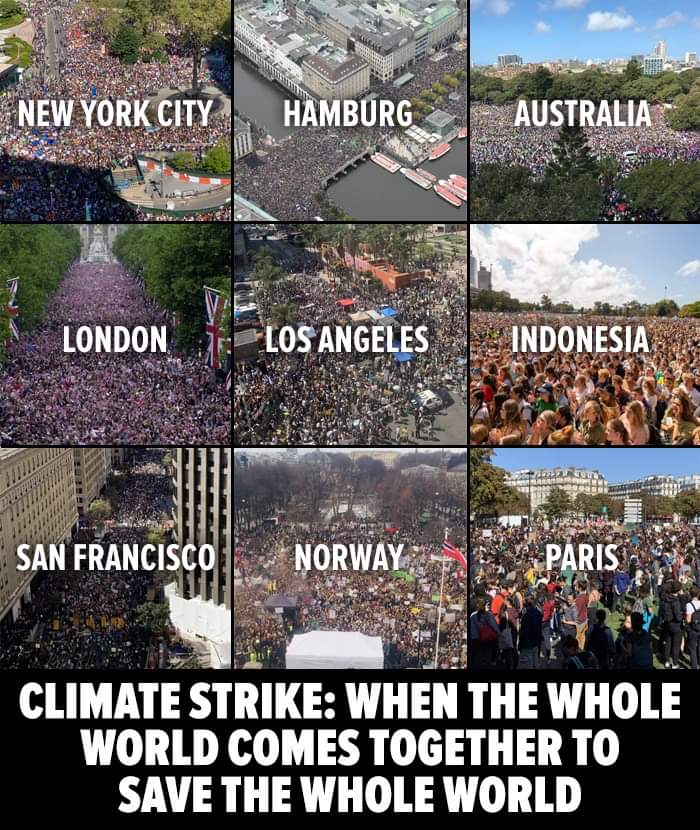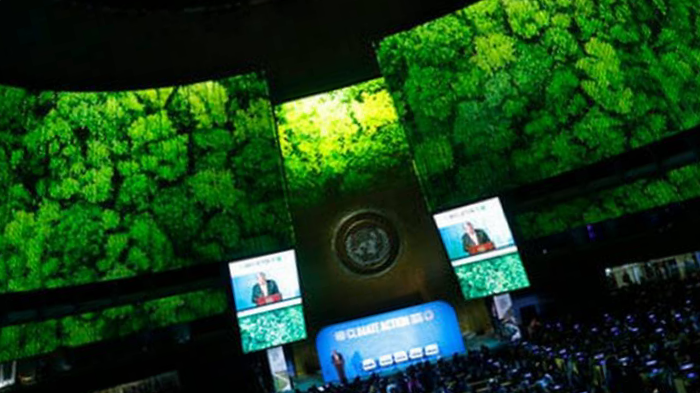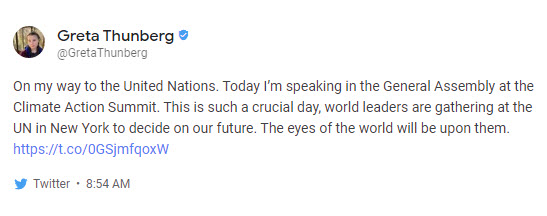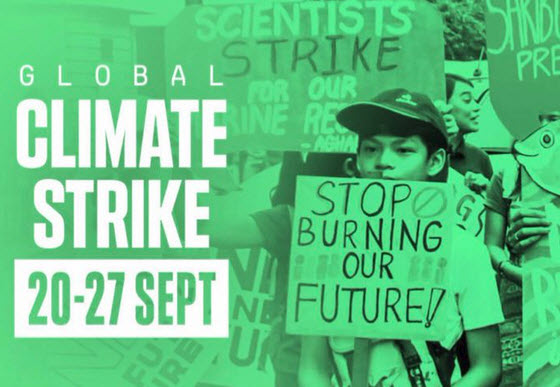Creatively Green
January 2020
Robert Scheer Interviews Noam Chomsky
Basing his first question on Chomsky’s immense body of work, Scheer focuses on the well-known texts by Aldous Huxley and George Orwell—“Brave New World” and “1984,” positing that there is “an amalgam of these two totalitarian, dystopian models emerging.”
“I think we can start with the assumption [that] we have to be concerned about a dystopian future. Which model do you see emerging?” Scheer asks.
Chomsky offers a detailed response based on the novel “We,” by Yevgeny Zamyatin, and Shoshana Zuboff’s “The Age of Surveillance Capitalism,” which, in his view, best predict and outline the techno-surveillance system that has already begun to take hold in the U.S. and beyond, as companies such as Google, Amazon and others find novel ways to exert control over humankind.
“The kind of model toward which society is moving is already illustrated to a substantial extent in China, where they have very heavy surveillance systems and … what they call a social credit system,” Chomsky says as he explains a Surveillance Socialism. “You get a certain number of points, and if you, say, jaywalk, violate a traffic rule, you lose points. If you help an old lady across the street, you gain points. Pretty soon, all this gets internalized, and your life is dedicated to making sure you follow the rules that are established. This is going to expand enormously as we move to what’s called the internet of things, meaning every device around you—your refrigerator, your toothbrush and so on—is picking up information about what you’re doing, predicting what you’re going to do next, trying to control what you’re going to do next, advise what you do next.”
Perhaps most alarmingly, Chomsky asserts that “Huxley was kind of right” in positing that “people may not see [this form of surveillance] as intrusive; they just see it as that’s the way life is, the way the sun rises in the morning.”
The interview goes on to discuss the dual existential threats of the climate crisis and of nuclear weapons as 'a global failure to address the climate crisis, as well as the nuclear arms race, which are both leading humanity to a precipice that may be impossible to walk away from.'
···············
From Elizabeth Kolbert
What Will Another Decade of Climate Crisis Bring
December 2019
From Paul & Cecile Andrews
November 2019
William Rees: Don't call me a pessimist on climate change...
I am a realist... To see our fate clearly, we must face these hard facts about energy, growth and governance
October 2019
Greenland: Beauty & Peril
By Marco Tedesco, Lamont Research Professor at the Lamont-Doherty Earth Observatory, Columbia University
Elegy for the Arctic... in the midst of melting icebergs in the Arctic
What happens in the Arctic doesn't stay there...
Dr. Marco Tedesco (of Columbia University’s Lamont-Doherty Observatory at The Earth Institute) shares his observations on the haunting beauty he observed while visiting Greenland’s ice sheet.
He writes about his fieldwork expedition and shares the terrifying reality of the state of melting ice sheets and sea level rise.
···············
Another summer, another fieldwork on the majestic Greenland. I have been visiting the ice sheet for more than a decade, but “it never gets old.” Every time I am here, I think of the first time I stepped on the ice, the feeling of entering into the scene of a stage that takes your breath away.
This year, our team is relatively small. There are only four of us: two researchers, one media person, and a “guest,” who has been kind enough to support our fieldwork by complementing funding from NASA and the National Science Foundation. As opposed to previous years, we will be camping on the tundra at the edge of the ice and will reach the place where we will collect our data by foot, rather than by helicopter.
As we cross the last crest that separates us from the Greenland ice sheet, we find ourselves in awe of the calm, yet powerful vision that unfolds in front of our eyes. The ice fills the landscape, merging with the sky at the horizon, like an ocean of frozen waves. Driving from the town of Kangerlussuaq in southwest Greenland, we are heading towards the edge of the ice sheet. Melting has been accelerating over the past decades as a response to increasing temperatures that here in the Arctic, have been rising twice as fast as the rest of the planet. We reach the gateway to the ice through a dusty and bumpy road that was built decades ago by a company to test cars in extreme cold and near-zero friction conditions. Abandoned after a few years, it is now used only by local travel agencies to drive the increasing number of tourists to witness the disappearing ice, like an animal soon to be extinct and whose roar comes from gushing streams.
We are here to study the single largest contributor to sea level rise (if we exclude the contribution due to the thermal expansion of the oceans that accounts for roughly 50 % of sea level rise). Greenland is responsible for about 25% of the current sea level rise, with this number very likely increasing to 40% or more by the end of the century. As the Arctic drifts away from its current state, the changes that are occurring enhance melting and the contribution of Greenland to sea level rise.
Read the full PBS story: https://www.pbs.org/wnet/peril-and-promise/2019/10/marco-tedesco-greenland-ice-sheet/
····························································································
September 2019
“Walking out of class, millions of students demanding action on climate change”
By Tom Engelhardt, TomDispatch.com
September 29, 2019
I’m a religious viewer of Lester Holt or at least what I can take of his show (usually about 15 minutes or so). The reason? Because I feel it gives me a sense of what an aging slice of Americans take in as the “news” daily on our increasingly embattled planet. If you happen to be one of the striking school kids with a certain perspective on the adults who have gotten us into our present global fix, then you won’t be shocked to learn that those “Fridays for Future” global demonstrations proved to be the sixth story of the day on that broadcast. But hey, who can blame Lester Holt & Co? (“Tonight, several breaking headlines as we come on the air!”) After all, not far from Chicago, an SUV (“Breaking news! Shocking video!”) had busted ever so photogenically into a mall and rambled around for a while knocking things over (but hurting no one) before the driver was arrested. No comparison with millions of human beings going on strike over the heating of a planet on which life forms of every sort are in increasing jeopardy.
····························································································
We're launching a new feature this month -- Creatively Green
SJS/GreenPolicy360 siterunner: After many years of step-by-step green work that led to our global GreenPolicy360 network and online site, with its challenges, opportunities and sharing of green best practices, and tens of millions of visitors and views, and friends and associates in nearly every country on Planet Earth, it is time to stretch a bit as we prepare for 2020 and our next decade of the 21st century.
So to celebrate being here together, we are launching a creative extension, a new venture that brings original and shared long-form writing to our readers and friends. Think of our latest as a journey, a first step in mind-expanding long-form adventures, essays and poetry, contemporary, classic and futuristic. The boundaries of our "Creatively Green" content require only passion, commitment and green ideas front-of-mind.
Apropos adventuring, let's go. Thank you Heather: From Scientist to Activist
From Scientist to Activist
By Heather Price
September 5, 2019
“Dr. Doom.” A few students joked, as we walked out of the seminar room. I didn’t laugh. I was uneasy, wondering if some of the climate forecasts from today’s chemistry department seminar would come to pass sooner than expected.
It was 1998, and this was the response from a few of my fellow University of Washington grad students, and when I first felt the unease of understanding the climate crisis. The talk was presented by Dr. Richard Gammon, one of my PhD advisors, and a co-author of the First Scientific Assessment of the Intergovernmental Panel on Climate Change (IPCC, 1990). Dr. Gammon’s seminar included overheads of the latest scientific findings, forecasts, and implications of the 1995 IPCC report and the 1997 Kyoto Protocol. This was my first time truly understanding the science and implications the climate crisis.
Read Heather's adventure via Medium
"Today, I see myself more as a doctor advocating for a patient.
My patient is the Earth."
○
At the UN Climate Summit: Leader after leader promises to do more
Biggest CO2 emitters in disarray as international cooperation drops away
US president/US climate policy push fossil fuels, act to block shift to clean energy
Before the Climate Summit: Limited expectations
- ○
- Atmospheric Science
- Additional Website Resources - Linked Data - Green Best Practices
- Anthropocene
- Climate Change
- Climate Policy
- Earth360
- EarthPOV
- Earth Observations
- Earth Science
- Ecology Studies
- Education
- EOS eco Operating System
- Environmental Protection
- Environmental Security
- ESA
- Green Best Practices
- Green Politics
- Green Values
- Internet
- NASA
- New Definitions of National Security
- New Space
- Nuclear Nonproliferation
- Online Education
- Peace
- Planet Citizen
- Planet Citizens
- Planet Scientist
- Planet Citizens, Planet Scientists
- Renewable Energy
- Resilience
- Strategic Demands
- ThinBlueLayer
- Whole Earth
